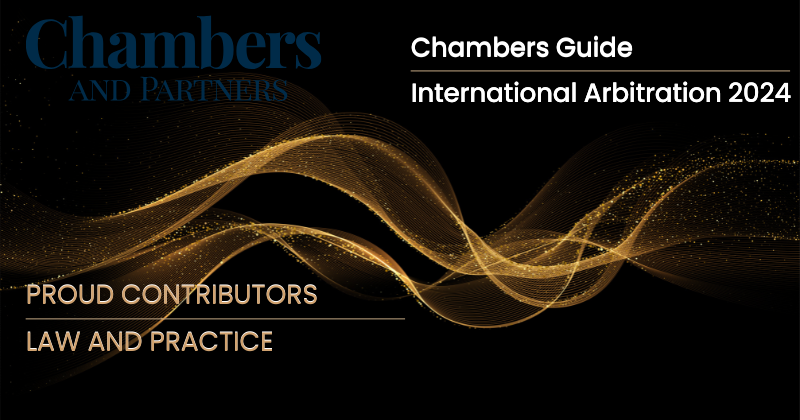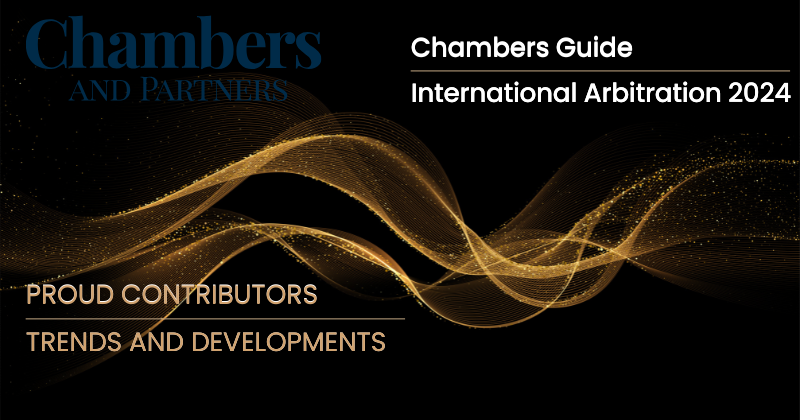INTRODUCTION
Kenya’s economy is currently sailing through uncharted waters, forcing the government to come up with tax amendments aimed at alleviating the tax burden on Kenyans and boosting liquidity amidst the coronavirus pandemic. Parliament has passed the Tax Laws (Amendment) Act, 2020 (the “Act”) which was assented to by the President on 25th April 2020.
THE AMENDMENTS
The Act has made several amendments to tax laws and tax related laws. We highlight the same hereunder.
The Income Tax Act
Qualifying Interest
The definition of ‘Qualifying Interest’ under section 2 of the Income Tax Act has been amended by removing the restriction to interest from financial institutions, banking institutions, building societies or the Central Bank. This effectively means that interest earned in other commercial investments amounts to qualifying interest and withholding tax on the same will be Final tax.
Withholding Taxes
Sections 10(1) and 35(1)(o) of the Income Tax Act have been amended to the effect that payments made to non-residents for sales promotion, marketing, advertising services, and transportation of goods (excluding air and shipping transport services) will now be subject to withholding taxes at the rate of 20% of the gross amount.
Paragraph 3(d) of the Third Schedule of the Income Tax Act has been amended by increasing the non-resident tax rate from 10% to 15% with respect to a dividend. Paragraph 3(p) too has been amended to include reinsurance and by further adding to the list sales promotion, marketing, advertising services, and transportation of goods (excluding air and shipping transport) services at 20% of the gross amount.
The rates of the resident withholding tax rates (Paragraph 5(d)) have been amended by increasing the amounts of money applicable with respect to pensions funds and pensions income. This means that those earning pensions below Kshs. 288,000 will not have the withholding rates applicable to them. Finally, paragraph 9 of the Third Schedule has been amended reducing the presumptive tax rate from 3% to 1% in line with the presidential directive on tax reliefs
Turnover Tax
Turnover tax was previously applicable at the rate of 3% on businesses earning a maximum income of Kshs. 5 Million. Subject to an amendment of section 12C (1) of the Income Tax Act, companies as well as businesses (including partnerships and sole proprietors) with an income of between Kshs. 1 Million and Kshs. 50 Million can opt to be subjected to turnover tax at the rate of 1% of the gross receipts.
Presumptive Tax
By deleting section 12C (5) of the Income Tax Act, presumptive tax at the rate of 15% of the single business permit at the time of renewal has been removed. It will consequently be payable by monthly filings to Kenya Revenue Authority.
Allowable Expenses
Section 15 (2) (ab) of Income Tax Act that provided for a 30% rebate on electricity costs incurred by manufacturers has been deleted. This means that the same will no longer be deducted in the ascertainment of the total taxable income.
Incomes Exempt from Taxes
The First Schedule of the Income Tax Act that sets out incomes expressly exempt from income tax has been amended by deleting a number of paragraphs. This means that the following incomes will now be subject to Income Taxes.
- Income from certain state boards and authorities including Pyrethrum Board of Kenya, Sisal Board of Kenya, Kenya Dairy Board, Canning Crops Board, Central Agricultural Board, Pig Industry Board, Pineapple Development Authority, Horticultural Crop Development Authority, National Irrigation Board, Mombasa Pipeline Board, Settlement Fund Trustees, Kenya Post Office Savings Bank; and Cotton Board of Kenya.
- Profits made by the Agricultural Society of Kenya from an exhibition held for purposes of the society.
- Interest on tax reserve certificates which may be issued by authority of Government.
- Gains on transfer of shares of a local authority.
- Gains on transfer of land adjudicated under Land Consolidation Act and Land Adjudication Act when the title has been registered under the Registered Land Act and transferred for the first time.
- Interest earned on contributions paid into the Deposit Protection Fund.
- Interest earned on loans granted by the Local Government Loans Authority established under the Local Government Loans Act.
- Dividends received by a registered venture capital company.
- Gains from the trade in shares of a venture company earned by a registered venture company within the first ten years from the date on first investment in that venture company by the venture capital company.
- Interest income generated from cash flows passed to the investor in the form of asset backed securities.
- Dividends paid by a registered special economic zone enterprise, developer and operator to non-resident persons.
Capital Deductions
The rate of Investment allowances for certain Capital Expenditures have been amended as follows:
| Particulars | Rate |
| Hotel buildings, buildings in use for manufacture, hospital buildings, petroleum or gas storage facilities, | 50% in the year of first use and 25% per year on reducing balance. |
| Educational and commercial buildings | 10% per year on reducing balance |
| Machinery used for manufacture, hospital equipment, ships or aircrafts | 50% in the year of first use and 25% per year on reducing balance. |
| Motor vehicle and heavy earth moving equipment, computer and peripheral computer hardware and software | 25% per year on reducing balance. |
| Furniture and fittings, telecommunications equipment, | 10% per year on reducing balance |
| Filming equipment by local producer | 25% per year on reducing balance. |
| Machinery used to undertake exploration or operations on prospective rights or mining right | 50% in year of first use and 25% on a reducing balance basis thereafter |
PAYE
The amount of personal relief has been increased from Kshs.16,896 p.a to Kshs. 28,800 p.a.
The rate of tax in the highest income tax bracket has been reduced from 30% to 25% and the income subject to tax in the highest bracket has been increased from Kshs. 47,059 to Kshs. 57,333.
Withdrawals from a registered pension or provident scheme or the National Social Security Fund (NSSF) before the expiry of 15 years from the date of joining the scheme has been aligned to the individual tax rates. On the other hand, any withdrawal from a registered pension or provident scheme or NSSF after the expiry of 15 years from the date of joining the scheme for amounts exceeding Kshs 1.2 million, has been reduced from 30% to 25%.
The Value Added Tax Act (VAT Act)
Standard Rate
The standard VAT rate had been revised from the standard rate of 16% to 14% by way of Gazette Notice.
Credit Notes
Subject to the VAT Act, Credit Notes can be issued after 6 months from the invoice date. In the case where there is a commercial dispute in relation to the price payable, a credit note can be issued within 30 days after determination of the matter.
Refunds of Tax on Bad Debts
Section 31 of the VAT Act has been amended by reducing the period within which a taxpayer may apply for a refund from 5 years to 4 years from the date of the supply.
Record Keeping
The Act has also amended section 43(1) of the VAT Act by deleting the word “every registered” and inserting the article “A” this means that every person whether registered or not, is required to keep records of all their business transactions for at least 5 years.
Exempt Items
Personal protective gear including masks that were subject to VAT at the standard rate of 14% are now exempt. Further, vaccines for use in human and veterinary medicine, infusion solutions and medicaments cease are now exempt.
The following items that have been exempt will now be subject to VAT at the standard rate of 14%.
- Plant and machinery used for manufacture of goods.
- Taxable supplies imported or locally purchased for use in construction of power generating plants.
- Plastic biogas digesters.
- Biogas and Leasing of biogas production digesters.
- Parts imported or purchased locally for information technology purposes (subject to approval of the Cabinet Secretary).
- Goods imported or purchased for use in construction and development of industrial parks of 100 acres.
- Exhibits, specimens, equipment, chemical reagents, films, film strips, visual aid equipment for public museums.
- Asset transfer and other transactions related to the transfer of assets into a Real Estate Investment Trusts (REIT) and other asset-based securities.
The Excise Duty Act, 2015
The definition of “other fees’ as set out in the First Schedule Part III of the Excise Duty Act has been amended by deleting the words “licensed financial institutions” and substituting it with the words “licensed activities.” This effectively means that excise duty is only applicable on licensed activities of a financial institution.
Tax Procedures Act, 2015
Private Ruling
Sections 65(3) of Tax Procedures Act has been amended by extending the period within which the Commissioner should determine a private ruling from 45 days to 60 days. Further, section 69 requiring publication of Private Ruling has been repealed.
Penalty for Late Filling of Turnover Tax Returns
Subject to the amended section 83(1)(b) of the Tax Procedures Act, the penalty for the late filing of Turnover tax returns has been reduced from Kshs. 5,000 to Kshs. 1,000.
The Kenya Revenue Authority Act, 1995
The KRA Act has been amended by inserting a new section 15A that empowers the Commissioner to appoint a bank to act as an agent for revenue banking services .The said agent is required to transfer the funds to the designated Central Bank of Kenya accounts within a maximum of 2 days following the date of collection. Failure to comply with this provision imposes a tax debt on the appointed agent.
This alert is for informational purposes only and should not be taken as or construed to be legal advice. If you have any queries or need clarifications, please do not hesitate to contact Partner, Lena Onchwari ([email protected]), and Associate, Wanjala Opwora ([email protected]) or your usual contact at our firm, for legal advice relating to the COVID-19 pandemic and how the same might affect you.
Related Insights
Salient Changes Under The Business Laws (Amendment) Act, 2020
Weathering the storm: Steps an employer can take to mitigate the effects of the COVID-19 pandemic
Legal & Tax Perspective of the Presidential Tax Directive – COVID-19
Coronavirus (COVID- 19) | Oraro & Company Advocates’ Contingency Measures





